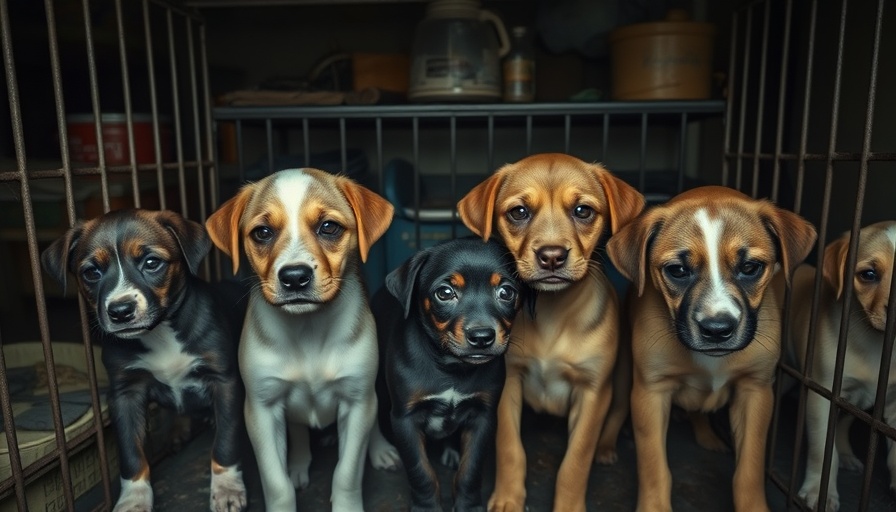
The Painful Reality of Animal Neglect in Brown County
In Ripley, Ohio, the plight of eight neglected dogs serves as a stark reminder of ongoing issues surrounding animal welfare laws. On May 1, local dog wardens discovered the animals confined in squalid conditions, deprived of basic necessities like food and water, amidst a home filled with garbage. Chief Dog Warden Melissa Downs expressed the gravity of the situation, stating, "It's my job to see animals in these conditions. The biggest thing is we want to do what's right by the animals." The sight of dehydrated, malnourished pets was harrowing—not just for the rescuers, but for the community at large, which is increasingly frustrated by the recurrence of such incidents.
Understanding the Legal Limitations
Delta Bealer, the property owner, is facing eight counts of animal cruelty, and this marks the third time she has come under scrutiny for similar offenses. Despite previous legal actions taken against her, including animal abandonment in 2021 and another related court case expected to adjudicate in 2024, she remains able to possess pets post-probation, raising pressing questions about the effectiveness of current animal welfare laws.
As Downs articulates, the legal framework provides only limited relief. During probation, animal possessors can have their animals removed if they violate probation terms. However, once that probationary period ends, the lack of enforcement mechanisms leaves communities powerless. “Once they're off probation, there's nothing we can do,” Downs adds, highlighting both her frustration and concern for animal welfare. This systemic issue raises an urgent need for reform in animal protection laws, particularly to hold repeat offenders accountable.
A Community on Edge
The residents of Brown County are understandably agitated by the repeated neglect cases, and the community's trust in local enforcement is waning. Many are calling for legislative changes that could streamline the process and empower agencies to act decisively against properties harboring repeated offenders. The prevalent sentiment can be summarized in Downs's plea: “We want to do something to prevent this from happening again.” With the untold suffering of countless animals hanging in the balance, the fight for stronger animal rights legislation is becoming a rallying cry for compassionate citizens across the state.
Future Directions for Animal Welfare
To combat neglect effectively, lawmakers and animal welfare advocates must collaborate closely. Proposals often include implementing stricter penalties for repeat offenders, education programs aimed at pet owners, and increased funding for animal control services. Such measures could significantly improve the conditions for animals like those recently rescued in Brown County and foster a more humane environment where neglect becomes increasingly rare.
PAWS for Consideration: How You Can Help
As residents reflect on the distressing situation, local organizations are encouraging community members to engage in animal welfare initiatives. Simple actions such as volunteering at pet shelters and supporting legislative reform efforts can make a significant impact. Collective action begins at the community level, and every effort counts in building a more compassionate future for all animals.
The alarming trend in Brown County and similar areas serves as a call to action—not just for lawmakers but for everyday citizens. Understanding the complexities of animal neglect, supporting stronger legislation, and advocating for change are imperative to prevent future tragedies. Your voice in this critical matter matters immensely. For those interested in advocating for animals, consider contacting your local representatives to express support for more robust animal welfare laws.
 Add Row
Add Row  Add
Add 




Write A Comment